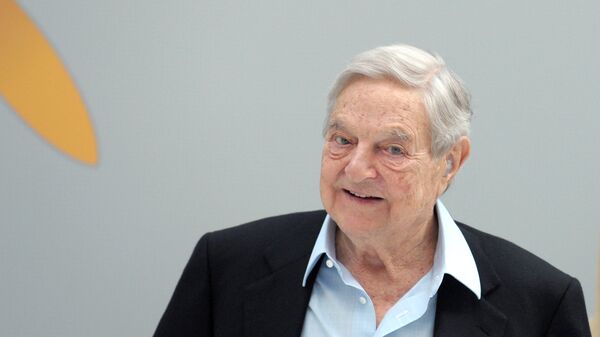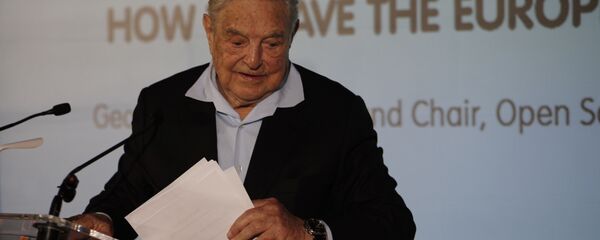Demand Justice has committed to spending $5 million to fight the confirmation of Kavanaugh and aims to raise $10 million in 2018, according to a New York Times article featuring an interview with Brian Fallon, the group's executive director.
Brian Fallon, Demand Justice's executive director, was once a spokesperson for Hillary Clinton, worked under Senate minority leader Chuck Schumer (D-NY) on Capitol Hill and spoke in 2018 at a conference held by Democracy Alliance, a fundraising group to which Soros belongs.
Demand Justice's chief counsel is Christopher Kang, a longtime aid to former president Barack Obama.
Because of its structure, it is impossible to determine how much money from Soros the organization has received.
The group plans to run advertisements to help Democrats in the midterm election and push back on those who stray from the party line in key states, as well as asking lawmakers to oppose the nominations of judges that would overturn US abortion laws.
Demand Justice is financed heavily by satellite organizations, which are in turn funded by liberal financier George Soros. Demand Justice is financed and organized by the Sixteen Thirty Fund, which receives a huge amount of money from Soros.
Demand Justice is exempt from filing tax returns because it's "fiscally sponsored" by a tax-exempt social welfare organization: the Sixteen Thirty Fund. Both groups share one address. Social welfare organizations do not have to disclose who their donors are and are allowed to participate in political activity as long as said activity constitutes less than half of the organization's operations.
The Sixteen Thirty Fund's mission is to "provide education and build a base of grassroots activism and a national movement to demand the advancement of a new agenda on a broad range of issues," according to a 2014 financial statement by the organization. It bills itself as a "grassroots" organization despite the fact that it receives 70 percent of its funding from just three donors.
One of them is the Open Society Policy Center, a funding arm of Soros' operations, which gave the Sixteen Thirty Fund some $2.27 million between 2012 and 2016, according to its tax forms.
In its summary of lobbying activities for the first quarter of 2017, the Open Society Policy Center (OSPC) confirmed it had provided the Sixteen Thirty Fund with $250,000 for that period.
This establishes a link and working relationship between Soros' OSPC and the fund, but as the OSPC's summary filings for this quarter (Q3 2018) are yet to be published, it's impossible to determine exactly how much Soros has donated to the group to fight the confirmation of Judge Kavanaugh to the US Supreme Court.
Contrary to the oft-repeated line that Soros "pays protesters," his organizations' methods of operation for funding liberal activism rather include funneling money from organization to organization in ways that are difficult to discern, with cash eventually falling into the hands of one that galvanizes the masses to action with liberal messaging.
His donations have proved controversial, especially in Hungary, with Budapest claiming that Soros attempted to meddle in the country’s recent parliamentary elections to remove the Eurosceptic Fidesz Party from power, and replace them with more amenable politicians, to serve his interests.
Last month, the Hungarian government successfully passed its so-called “Stop Soros Act,” limiting the ability of pro-migrant NGOs to operate in the country.
READ MORE: Soros Buys Xiaomi Shares Amid Trade War Between US and China — Reports





